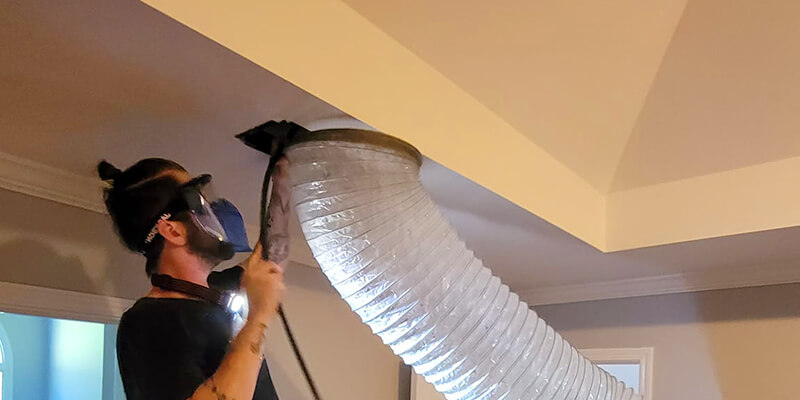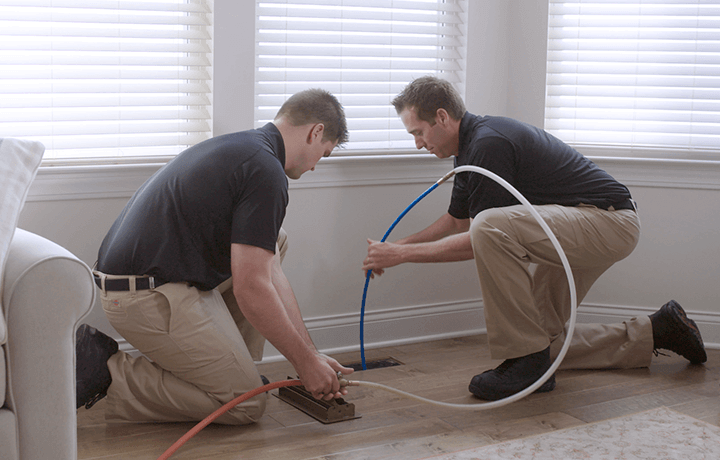For homeowners and business owners alike, knowing how to turn off the HVAC system is crucial. An HVAC system regulates the climate within your property and ensures comfort for its occupants. However, there are times when you need to power it down for maintenance, emergencies, or seasonal changes.
Whether you are a homeowner dealing with routine maintenance or a business owner aiming at energy efficiency, understanding the process of shutting down your HVAC system can save you time and money. This article will walk you through the steps, precautions, and tips on how to turn off your HVAC system.

Understanding Your HVAC System
What is an HVAC System?
The term HVAC stands for Heating, Ventilation, and Air Conditioning. It involves a set of systems responsible for heating and cooling residential and commercial buildings. The components include furnaces, air conditioners, heat pumps, ductwork, and thermostats.
The Importance of Knowing How to Turn Off HVAC System
The first step in understanding how to turn off the HVAC system is knowing its importance. Turning off the HVAC system is essential for seasonal transitions, energy conservation, emergencies, and during routine maintenance. Its a critical skill for efficient home and business management.

When You Might Need to Turn Off Your HVAC System
Emergency Situations
During emergencies such as gas leaks, power surges, or when you’re dealing with natural disasters, turning off your HVAC system mitigates damages and ensures safety. Always be aware of emergency shut-off procedures.
Seasonal Changes
In times of seasonal transitions, you may need to shut down the air conditioning component to prepare the heating system. Conversely, you might be turning off the heating component as warmer months approach.
Routine Maintenance
Regular maintenance often necessitates shutting down your HVAC system to inspect and clean various components safely. This can prevent future malfunctions and extend the life of your HVAC system.

How to Turn Off HVAC System: Step-by-Step Guide
Step 1: Adjust the Thermostat
Turn off the HVAC system at the thermostat by setting it to ‘off’ or adjusting the mode to a non-operational function. This is the most direct method and affects the systems core commands.
Step 2: Locate the Circuit Breaker
The circuit breaker for your HVAC system is usually found within your buildings electrical panel. It may be labeled as ‘HVAC,’ ‘Furnace,’ ‘AC,’ or similar. Flip the switch to the ‘off’ position to cut off the power supply.
Step 3: Shut Off the Power to the Indoor Unit
Locate the indoor unit, often found in basements, attics, or designated closets. There should be a power switch on or near the unit. Turn it off to ensure no power flows to the HVAC system.
Step 4: Cut Off Power to the Outdoor Unit
The outdoor unit usually has a separate disconnect box, typically mounted on the wall near the unit. Open this box and flip the switch to cut off power.
Step 5: Double-Check Everything
Before you proceed with any maintenance or leave the system off for a while, double-check all switches and settings to ensure the system is completely powered down.

Precautions and Safety Measures
Ensuring Safety Before Turning Off
Before turning off your HVAC system, ensure your hands are dry to avoid any risk of electrical shock. Also, wear protective gear if necessary.
Handling Emergencies
Always have an emergency plan and know the exact locations of all shut-off switches and circuit breakers. Your priority should be safety.

Benefits of Turning Off Your HVAC System
Energy Conservation
Turning off your HVAC system when it’s not needed helps conserve energy, which in turn saves on utility bills and reduces your environmental footprint.
Extending System Life
Regularly shutting down the system for proper maintenance can significantly extend the life of the components, reducing the frequency of replacements or major repairs.
Cost Savings
Knowing how to turn off your HVAC system yourself eliminates the need for professional help for simple tasks, saving you on service fees.
Tips and Tricks for Efficient HVAC System Management
Regular Maintenance
Stay on top of regular HVAC maintenance to ensure efficiency and longevity. Check and replace filters, clean ductwork, and inspect components regularly. Clean ductwork is essential for optimal performance.
Seasonal Tune-Ups
Schedule tune-ups for your HVAC system before seasonal changes. This ensures the system is running efficiently and is prepared for temperature shifts.
Energy-Efficient Settings
Utilize energy-efficient settings on your thermostat to balance comfort and conservation. Proper settings can prevent unnecessary wear on the system.
Common Mistakes to Avoid
Ignoring Regular Maintenance
Skipping scheduled maintenance can lead to system malfunctions and decreased efficiency over time. Staying proactive is the key.
Incorrect Thermostat Settings
Ensure your thermostat settings are correct to avoid unnecessary strain on your HVAC system. Mismanagement can lead to higher energy bills and mechanical failures.
Neglecting Professional Help
While its good to know how to turn off your HVAC system, don’t hesitate to call in professionals for complex issues. Specialized knowledge and tools could be required.
Frequently Asked Questions
Do I need to turn off my HVAC system for routine maintenance?
Yes, turning off your HVAC system ensures safety and allows comprehensive inspections and cleaning. It’s vital to eliminate any risk of electrical shocks or mechanical complications.
Where is the HVAC circuit breaker located?
The HVAC circuit breaker is usually located in your buildings main electrical panel. It typically carries labels such as ‘HVAC’, ‘Furnace’, or ‘Air conditioning’ for easy identification.
Can turning off the HVAC system improve energy efficiency?
Yes, turning off your HVAC system during inactive periods conserves energy and can lead to significant savings on utility bills.
Conclusion
Understanding how to turn off the HVAC system is an essential skill for homeowners and business owners. It helps with regular maintenance, emergency management, and improving energy efficiency. By following these step-by-step instructions and practicing the tips provided, you can ensure the longevity and efficiency of your HVAC system.
For more in-depth information on maintaining your HVAC system, including professional advice and services, you can consult resources available on Duct Cleaning Gilbert.